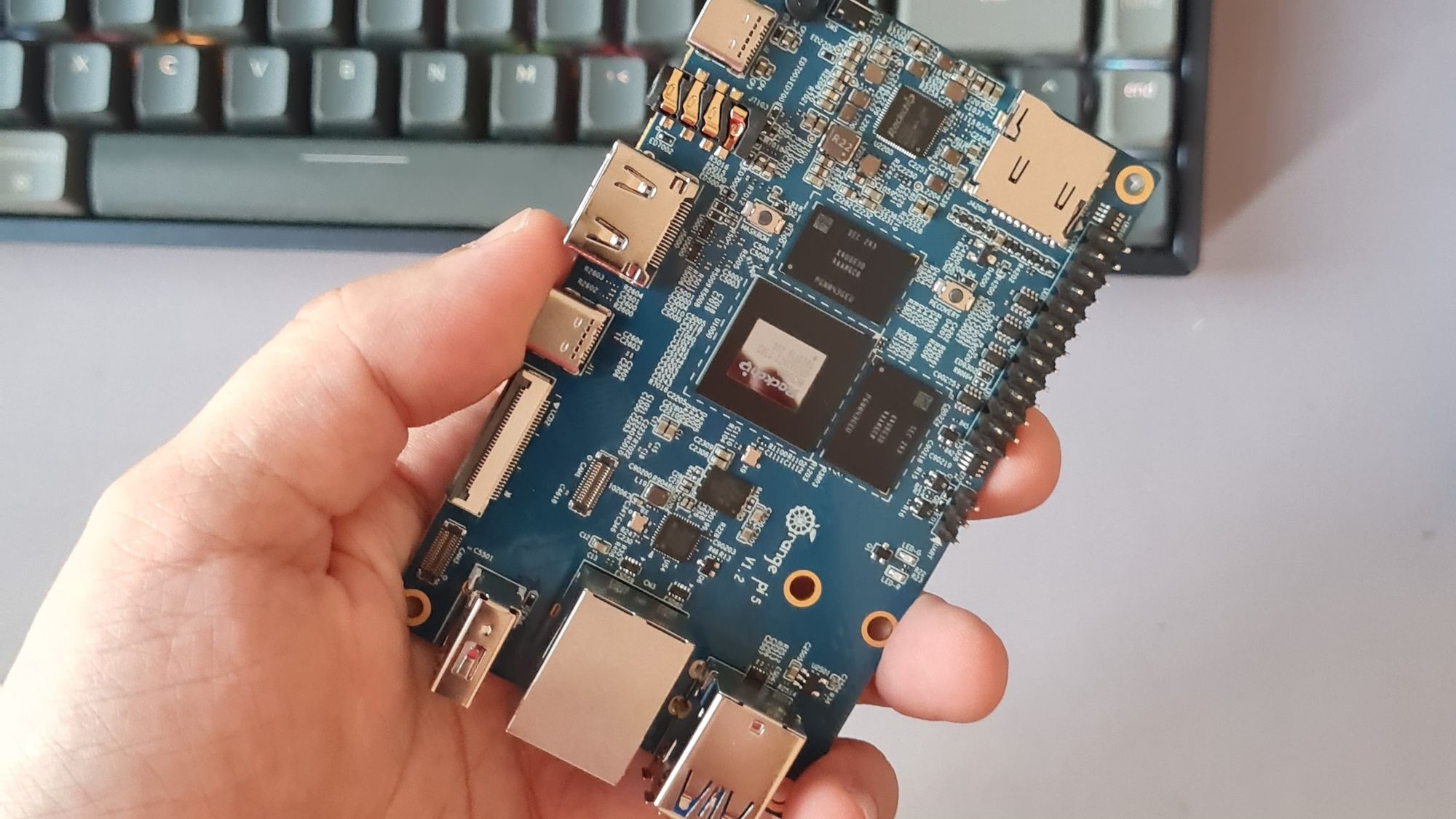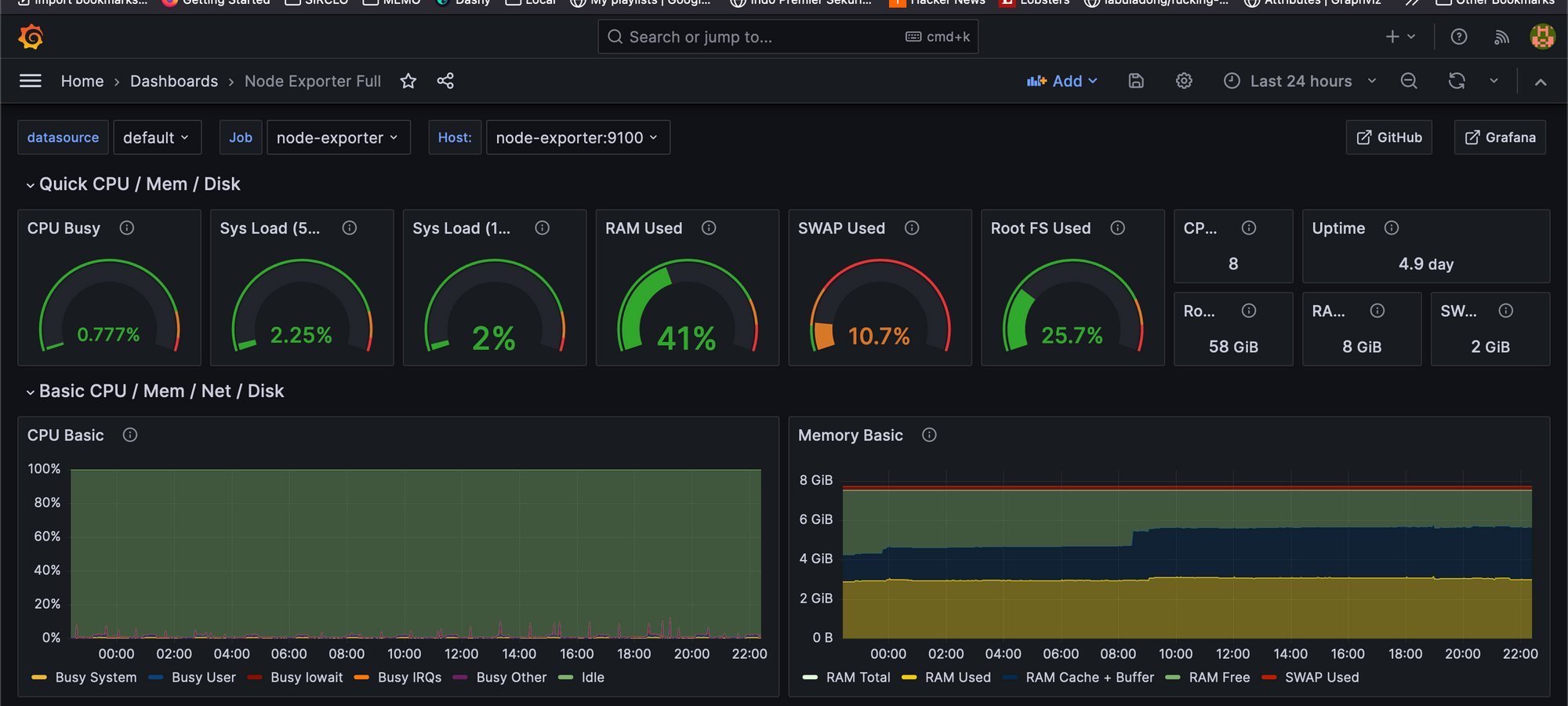Orange pi 5 first impression

After giving a lot of time thinking of whether I should "invest" more in a product, I finally decided to buy Orange Pi 5, this one comes without EMMC and WiFi, but it does have a slot for m2 nvme and WiFi extension.
This post will talk about my first impression of Orange Pi, what is the issue, and how well it works.
note if you're living in Indonesia, purchasing orange pi is cheaper with aliexpress.com, even after adding shipping cost and tax. I would recommend this if you have time to wait for, my item get delivered in 22 days (from estimated 30 days)
Back to the orange pi, which I will call pi from now on, I already migrate all my home media setup from my old laptop to the pi, it's pretty simple because I copy all the docker setup and the data. I use Ubuntu Server from Joshua Riek for the OS, a brand new Samsung micro sd for the storage, and a Realme type c charger (I see that it matches orange pi's requirement – 20w / 5v 4A).
noteworthy things:
Some bumpy road that never occurred to me on cloud server setup
first time working with a machine that is only accessible from SSH, I find some issues like the IP address that keeps changing back to default until I realize that I must use static IP, I use netplan for this.
fun fact, I reformated the OS because I thought I messed up with my boot config
After I confirm that I have static IP after a reboot, I found out my radarr / jacket services can't access torrent sites because they are blocked by our government's "healthy internet" (a firewall layer that blocks porn / whatever site the government didn't like), Okay, I can use DNSCrypt, but no.. netplan didn't respect its own DNS / nameserver config, changing nameserver at /etc/resolv.conf keep revert to default because of some process.
The solution? – Removing the symlink of /etc/resolv.conf and create the file manually with a nameserver pointed to DNSCrypt IP
Kubernetes setup
To be honest, this is something that I try first after booting up, but after installing, I find out on k3s documentation that kubernetes's etcd wear micro sd faster because of the high I/O, maybe I will try another alternative (for example this one) or just waiting for my budget to losses up and me buying storage. I will have another blog post for that
Slow USB with exfat or high storage
This is something that I need to research more, but I find out that browsing the ExFAT hard disk is noticeably slower than ext4, sometimes to the point that I can't ls the disk, but this is can also because it's a 5TB ExFAT hard disk and it may consume more power than the pi can provide(?). After I change it to my old 500GB ext4, disk browsing and writing are smoother and I just keep that way until I need the urge of more storage.
Benchmark
the results:
| Devices | sysbench (event per second) |
| Acer v5 471 | 384 |
| Linode 1 CPU 1 GB | 1148 |
| Orange Pi 5 | 2523 |
| GCP 2 CPU 8 GB | 903 |
| Macbook Pro 2015 | 3339833 |
that MacBook Pro result is.. weird, sysbench may not be a standard tool for benchmarking, but I think we can get the picture with the comparison with cloud providers like Linode or GCP. The pi's CPU / Memory utilization itself is quite low with my current setup

what I use the pi for
For now, I mostly use this as a media server, monitoring, and file downloader, but in the future, I'm planning some stuff like:
- Exposing some services to the internet, with authentication

- SSO with Authelia or Authentik or Pomerium if I'm very lazy
- Smart home that uses Local Area Network, so that my house does not become a dumb house whenever there's an internet outage. I use home assistant for this, the problem that I encountered is integration with Bardi devices. My Philips Wiz light and Xiaomi Yeelight are automatically detected with the home assistant, but Bardi's are a little more complicated)
- CCTV server
- Baremetal Kubernetes setup
